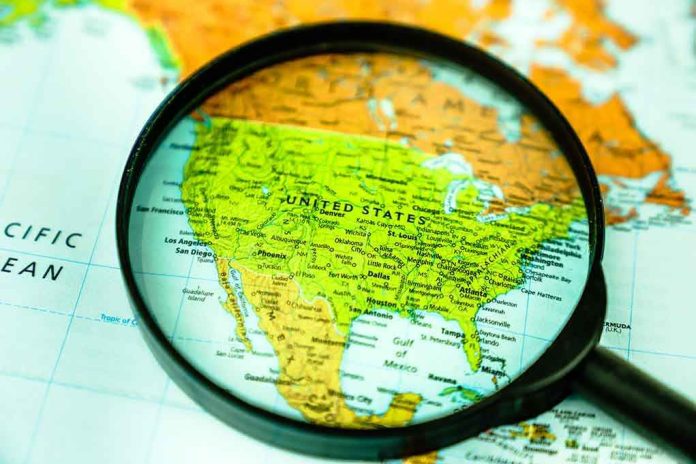
A new U.S. travel advisory highlights terrorism threats in Mexico, raising security concerns for American travelers.
Story Highlights
- The U.S. State Department has issued a Level 4: Do Not Travel advisory for six Mexican states.
- The advisory cites crime, terrorism, and kidnapping as key risks.
- This update aligns with the extradition of 26 cartel leaders to the U.S.
- Heightened security measures are underway in affected regions.
U.S. Travel Advisory and Security Concerns
On August 13, 2025, the U.S. State Department released a critical update to its travel advisory for Mexico, designating six states—Colima, Guerrero, Michoacán, Sinaloa, Tamaulipas, and Zacatecas—as Level 4: “Do Not Travel.” This designation stems from heightened risks of crime, terrorism, and kidnapping. The advisory’s timing coincides with significant law enforcement actions, including the extradition of 26 cartel leaders to the United States, demonstrating the ongoing security challenges these regions face.
The affected states are notorious hotspots for cartel operations and violent crime. Sinaloa, for example, is home to the infamous Sinaloa cartel, and Michoacán is a key area for drug production. The advisory’s explicit mention of terrorism as a risk, alongside crime and kidnapping, marks a notable shift in the U.S. approach to travel advisories, reflecting the complex security landscape in Mexico.
Impact on U.S.-Mexico Relations
The advisory is expected to strain U.S.-Mexico relations, especially if security conditions do not improve. The U.S. government aims to protect its citizens and exert pressure on Mexico to address these security threats, while Mexican authorities strive to maintain order and international cooperation. However, the advisory’s impact on tourism and local economies could complicate these efforts, as regions rely heavily on tourism and cross-border trade.
Short-term implications include a sharp decline in tourism and business travel to the affected states, potentially leading to economic downturns. In the long-term, persistent security issues may result in migration pressures as residents seek safer environments. The advisory’s granularity, assigning specific risk levels to each state, indicates a more nuanced approach to travel warnings, moving away from blanket advisories.
Response and Future Developments
Following the advisory’s release, U.S. and Mexican law enforcement agencies have ramped up security operations in the affected regions. Mexican authorities have emphasized ongoing efforts to combat cartel violence and restore stability. The extradition of cartel leaders represents a significant development in the bilateral fight against organized crime, potentially disrupting cartel operations and reducing violence in the long term.
The advisory remains in effect as of August 13, 2025, with no immediate signs of de-escalation. As the situation unfolds, travelers and local communities must navigate the complex landscape of security risks and diplomatic tensions. The advisory serves as a stark reminder of the persistent threats posed by organized crime and terrorism, underscoring the need for vigilant travel planning and proactive security measures.
Sources:
Mexico Travel Advisory August 13, 2025
State Department Mexico Level 2 Travel Advisory
U.S. Updates Travel Advisory for All of Mexico
Mexico Travel Advisories – State Department
International Travel Country Information – Mexico





